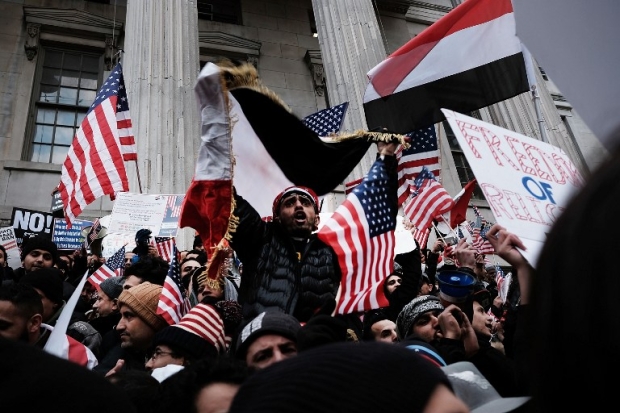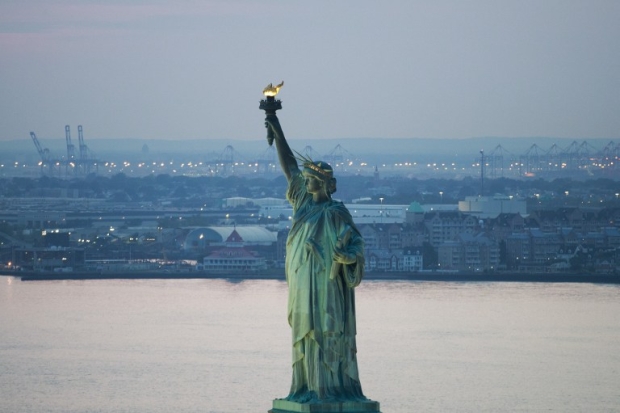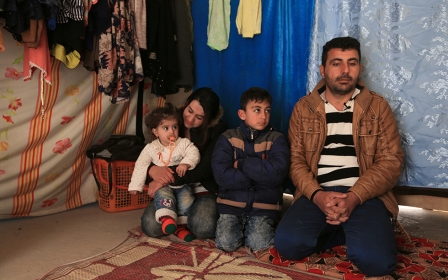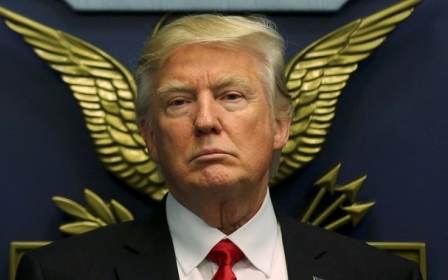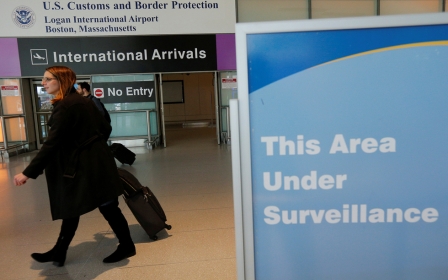Trump Muslim ban leaves families in suspension: 'We are trapped on all sides'
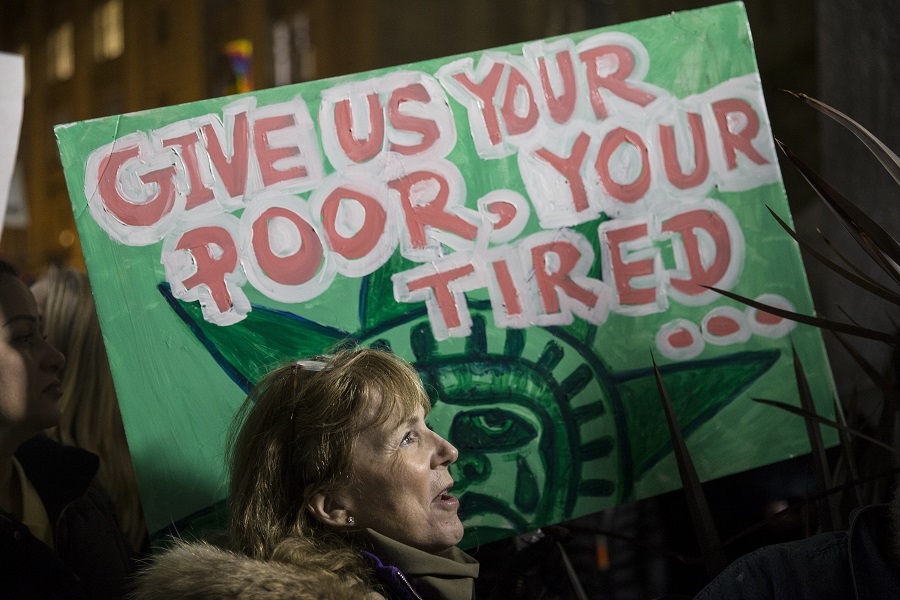
For Abdo Elfgeeh, a Brooklyn-based Yemeni-American, the news that a US court of appeal had refused to reinstate President Trump’s seven-nation travel ban was bitter sweet.
“We feel a partial release, however, I am still very anxious. Everybody is still nervous about the final outcome from the judges,” said a cautiously optimistic Elfgeeh, whose wife and children are still in Yemen.
For students and families of the seven Muslim-majority countries marooned at international airports, the decision of the ninth circuit court of appeals refusing to reinstate Trump’s travel ban came as a relief.
But for Elfgeeh, who was caught in the blizzard that swept through Queens on Thursday, the fight continues.
After the ruling on 4 February, President Trump furiously vented his frustration on Twitter writing, “See you in court. The security of our nation is at stake.”
Elfgeeh does not doubt the case will end up in the Supreme Court. He said there are suggestions that there could be a compromise from both sides, and even that would hurt.
“The judges might approve some of the executive orders applicable to the refugees and visitor visas. They might retain rights for those applying for residencies and for their close family members,” he said, adding that green card holders might be exempt.
'Still waiting'
Prior to Yemen’s war, Elfgeeh dreamed of launching a snack factory business in the capital, Sanaa. Days, months and years passed, and Elfgeeh’s outgoings on the unopened facility mounted, while his hopes waned. After the signing of Yemen’s National Dialogue Conference agreement in January 2014, Yemen’s political uncertainty worsened, but he persisted.
In the summer of June 2015, three months after the Saudi led coalition launched a campaign in support of Yemen’s government against Shia Houthi rebels, Elfgeeh abandoned plans for his business. He decided to return to New York, leaving behind his family. After arriving, he immediately filed his papers to relocate his wife and four children, aged between nine and 19 years old, but he never imagined that the legal process would be long and tedious.
“After the war started in March 2015, there was an order to expedite the process for war zone victims. It was quick and smooth until a year ago,” he recalled vividly.
The emotional toll of the travel ban invective has put an indefinite strain on vulnerable families and young children like Elfgeeh's family, an issue much overlooked in the name of America’s security.
“My children are going to school, but, honestly, they are not fully operational. They miss many days. Education is not a priority [in Yemen], it’s their safety now.”
Anti-Muslim ban or not?
The Council on American-Islamic Relations (CAIR), America's largest Muslim civil liberties organisation, immediately launched a constitutional challenge after the signing of the orders on 27 January.
Some Republicans, including former White house aide to George HW Bush Joseph Watkins, insist the ban is not aimed at any one religious minority. “The statute is aimed at keeping Americans safe. He wants to make it harder for terrorists to enter America,” Watkins tells MEE, adding that Trump was just fulfilling his campaign promise through the executive order.
“What he has to make clear is that the ban is not a ban against the Muslims," he said. “This will delay their entry so that there will be extended background checks,” Watkins said.
'What he has to make clear is that the ban is not a ban against the Muslims'
Trump himself told the Christian Broadcasting Network that his order was designed to favour persecuted Christians over Muslims. One of the president’s top advisers, Rudy Giuliani, said that Trump asked him how to legally implement a Muslim ban, the Washington Post reported on 29 January. But Christians were nevertheless affected by the ban.
On 30 January, two Syrian Christian families were turned back at Philadelphia airport after a long journey to the US. Trump's executive order temporarily banned citizens from seven countries - Iraq, Iran, Syria, Yemen, Sudan, Libya and Somalia - from entering the US.
Ian Samuel, who served in the US Department of Justice from 2009 to 2012, told MEE that the ban was discriminatory. “This a clear attempt to treat people differently because of religion, and disfavour Muslims.”
'This a clear attempt to treat people differently because of religion, and disfavour Muslims'
Watkins said if people thought the visa process was slow, the intractable legal battles will make things worse, especially for those travelling from the seven countries.
At the same time, “the administration needs to do a better job of explaining what it intends to do with its extreme vetting process. And to make sure people in other countries don’t get the sense it is anti-Muslim," he added.
'Un-American'
President Lyndon B Johnson signed the Immigration Act of 1965 at a symbolic ceremony at the foot of the Statue of Liberty. Also known as the Hart-Celler Act, it abolished an earlier 1924 quota system based on national origin and established a new immigration policy fixed on reuniting immigrant families and attracting skilled labour to the United States.
Johnson emphasised that the new act would rescind the old system which violated basic principles of American democracy.
“It has been un-American in the highest sense, because it has been untrue to the faith that brought thousands to these shores, even before we were a country,” Johnson wrote.
'Give me your tired, your poor, Your huddled masses yearning to breathe free'
An inscription at the foot of the Statue of Liberty, from the sonnet The New Colossus, reads: "Give me your tired, your poor, Your huddled masses yearning to breathe free, The wretched refuse of your teeming shore. Send these, the homeless, tempest-tost to me, I lift my lamp beside the golden door!"
“Our country is a country built on immigrants, we are historically conditioned to welcome immigrants," she said.
'Joy and relief'
Chaudry was heartened by the atmosphere at the airports and unyielding support from the American people. Organisations, businesses and individuals are also in support of lifting the ban.
“It was deeply moving to see the joy and the relief and the reactions from some of the families who were able to arrive after the temporary restraining order was placed by the Washington State judge," she said.
Determined to continue the fight, Chaudry said people understand Trump’s travel ban has been deeply problematic and flawed and does not keep our country safe. “This kind of policy has no place in our society. We are not going to stay silent.”
“On January 20, he took the oath in office, pledging to uphold the constitution, pledging to be a president for everyone," she said.
Legal loophole
Samuel points out there is a provision in the constitution giving the president the authority to suspend the entry of classes of aliens that he deems detrimental to the United States.
“But he is not permitted to discriminate on the basis of national origin - that has been the law in the United States since 1965,” he added.
'[Trump] is not permitted to discriminate on the basis of national origin'
While the law prohibits discrimination in the issuance of immigrant visas based on “race, sex, nationality, place of birth, or place of residence," there is no explicit mention of religion.
Like Watkins, Chaudry and Samuel are unequivocal that the case will end up in the Supreme Court.
“No individual has the sole authority to make decisions unilaterally without checks and balances coming into play. Unfortunately, Trump has a history of not looking upon favourably on any one system, individual or organisation that doesn't fall in line with what he thinks should be done.” Chaudry said.
'Trump has a history of not looking upon favourably on any one system, individual or organisation that doesn't fall in line with what he thinks should be done'
Samuel said that it is entirely possible that this case will make for an important new law on immigration, which will be relevant for decades.
Congress could change the immigration law, but the constitution itself prohibits religious discrimination - and the American constitution is very hard to amend, he said.
For Elfgeeh, who has been waiting for nearly two years, the ongoing legal hurdles have strained his chances of reuniting with his family any time soon. Elfgeeh's family represents one in a million whose lives are in abeyance.
“We are trapped on all sides. My kids cannot come here, and apart from the uncertainty of travelling to Yemen, who will provide for my family?” he asked.
New MEE newsletter: Jerusalem Dispatch
Sign up to get the latest insights and analysis on Israel-Palestine, alongside Turkey Unpacked and other MEE newsletters
Middle East Eye delivers independent and unrivalled coverage and analysis of the Middle East, North Africa and beyond. To learn more about republishing this content and the associated fees, please fill out this form. More about MEE can be found here.


